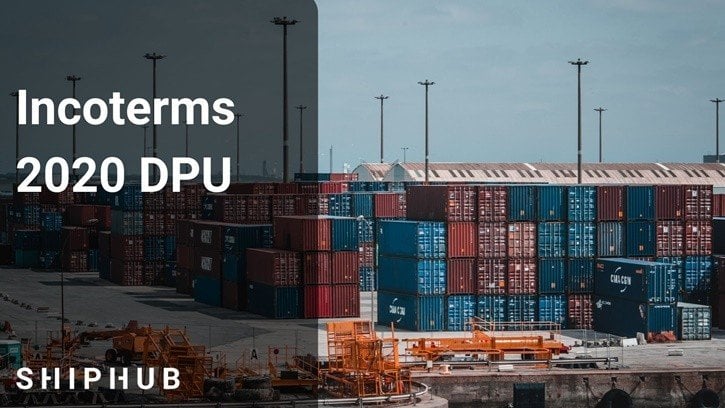In order to import goods, one should be familiar with the Incoterms rules. International Trade Rules are divided into several groups, which indicate the means of transport as well as the division of risk and costs. In group C, the basic costs of transport and insurance are paid by the seller.
Incoterms 2020 CIP – Allocation of costs
| The seller bears: | The buyer bears: |
| export and transit costs (outside the importing country): customs, taxes, export and transit permits, export security clearance and the cost of obtaining all official permits; | the costs of import formalities: customs, taxes, import and transit permits, import security clearance and costs of obtaining all official permits; |
| the costs of control activities, such as quality control, measurement, weighing, counting, delivery of appropriately labeled packaging; | the costs of obtaining any official authorizations; |
| the costs related to the shipment and transport of goods until they are delivered to the buyer; | the cost of obtaining documents or their equivalent electronic forms that the buyer needs when importing or transiting goods; |
| the costs of issuing and sending a commercial invoice; | the costs related to the good from the moment they are delivered on board the vessel; |
| the costs related to concluding the contract of carriage as well as packaging and labeling costs enabling the carriage of goods | any additional costs if the buyer fails to notify the seller of the time of shipment or place of destination; |
| the cost of transport insurance and informing the buyer about the delivery and handing over of goods to the carrier; | the costs of pre-shipment inspection of goods, (except when such inspections are required by the authorities of the exporting country); |
| unloading costs at the destination, if stated in the contract of carriage. | the costs of unloading goods, unless the contract of carriage indicates otherwise. |
What are the seller’s obligations?
- Carrying out all the duties under the terms of delivery specified in the contract.
- Handing over the goods to the carrier on the agreed date stated in the contract.
- Contracting or organizing the carriage of the goods from the agreed point of delivery to the named place of destination.
- Operating according to all transport-related security requirements for transport to the destination.
- Packaging and marking the goods.
- Assisting the buyer in obtaining any documents necessary for transit and import clearance formalities.
What are the buyer’s obligations?
- Taking delivery of the goods.
- Carrying out and paying for import clearance.
- Obtaining documents necessary for import and transit.
- Assisting the seller, at his request, risk, and cost, in obtaining any documents necessary for the export formalities.
- Informing the seller about the place and date of delivery.
Delivery of goods
In the CIP Incoterms rule, delivery of the goods is the moment of handing over the goods to the carrier. If there are several carriers, the seller is liable for the goods only until they are handed over to the first carrier. The risk related to the damage or loss of the goods transfers from the seller to the buyer at the time of placing the goods, e.g. on a ship or a train.
It is noteworthy that after the delivery of the goods to the carrier, the seller does not guarantee that the goods will arrive at the destination in good condition, in a specified quantity or at all. Nevertheless, the seller must conclude a contract for the carriage of goods from the place of delivery to the agreed destination.
Insurance of goods on the terms of Incoterms 2020 CIP
In the case of CIP Incoterms, the seller contracts for insurance in compliance with LMA and IUA clauses or any similar cargo clauses appropriate to the means of transport used. The exception is the custom in the industry or agreement between the parties.
It turns out that in the case of CIP Incoterms, the seller usually provides basic insurance for the goods. When required by the buyer, the seller must be ensured that the buyer provides all necessary information required by the seller, provide additional insurance if possible, such as insurance compliant with Institute War Clauses or Institute Strikes Clauses or similar clauses. The costs of additional insurance can be imposed on both the buyer and the seller.
The insurance should cover the price of transported goods plus 10%. The insurance should be in the same currency as the prices of the goods specified in the contract.
Incoterms 2020 CIP in transport
The CIP rule can be used regardless of the chosen type of transport. This also applies to the use of more than one mode of transport.
In addition, if it is customary in the chosen mean of transport or the buyer expresses such a need, the seller must provide the buyer at his expense with the transport documents stated in the contract.
CIP and other Incoterms rules
In the CIP rule, the goods are transferred when they are delivered to the first carrier, while in the CIF rule when the goods are loaded on a mean of transport.
Also, unlike the CFR rule, in the CIP rule, the seller is responsible for concluding the contract and paying the cost of insuring the goods to the buyer.
The CIP Incoterms rule imposes on the seller the obligation to conclude a contract of insurance covering the risk of loss or damage to the goods by the buyer from the delivery point to at least the place of destination. This can cause difficulties when the destination country requires purchasing insurance cover on the spot. In this case, the parties should consider selling and buying under the CPT Incoterms rule.





